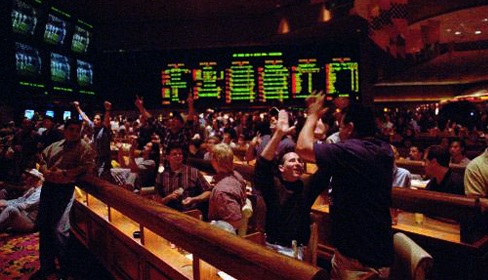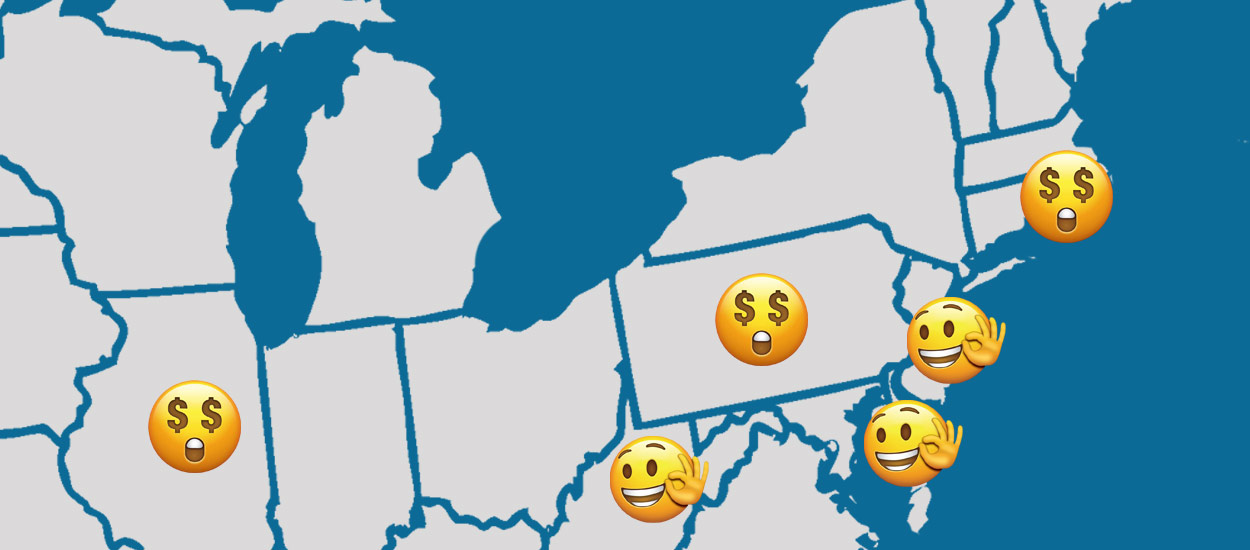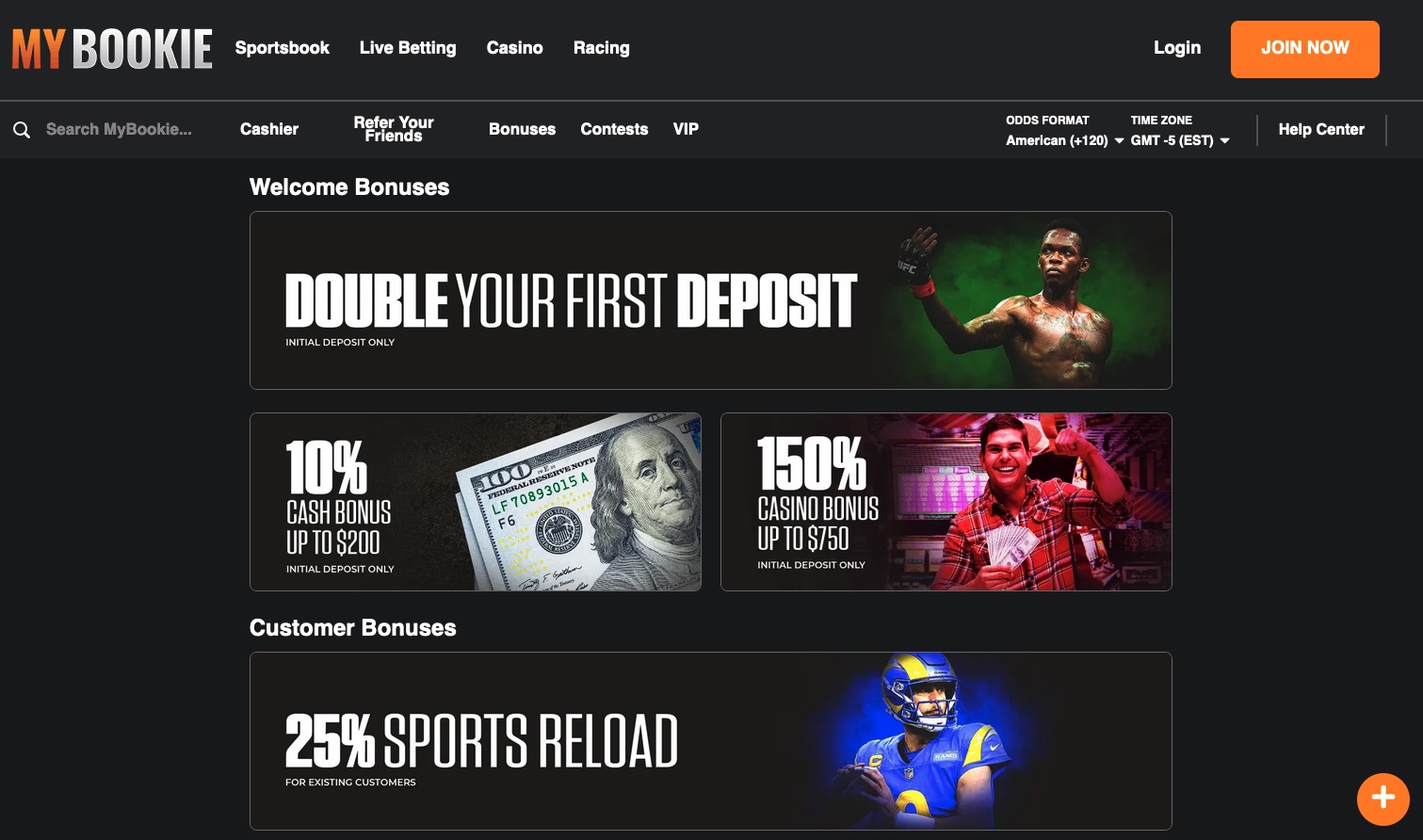As more U.S. states offers sports betting, they need to realize taxes and fees must be kept at a reasonable level
When it comes to betting, every gambling company loves casinos and poker. The odds on each are fixed and gambling companies get huge and guaranteed returns on slot machines and table games. Casinos make about 0.3-0.5% on blackjack and video poker, 1.5% on craps and pai gow, 3-5% on games like Let it Ride, Caribbean Stud Poker and 4 card poker and up to 15% on slot machines. And for poker they make up to 10% on ever pot from the rake. The only issue with poker is it takes up a lot of floor space, which is why poker rooms have been decreasing. With sports betting, however, it’s far different.
The margins on sports betting are as low as 2% and there is no guarantee that books can make that type of profit if the conditions aren't right. Books make their money off the vigorish on games, but they can only guarantee a profit if there is equal action on any market. Generally speaking, action from sharp players helps books set the lines and action from recreational gamblers helps balance the books. But that doesn’t always happen. In fact, most bookmakers fail to survive because they simply can’t get balanced action and as a result, they end up holding far too much one-way action, which they often lose. In the 1990s and early 2000s it seemed that books offshore were closing in droves and running off with players’ money and many casinos in Las Vegas started closing their sportsbooks. The reason almost always was because they were losing on a regular basis to sharp action and got themselves in a financial hole they couldn’t escape from. And even today some sportsbooks lose money in a given year. A couple of years back, William Hill’s stock price fell on the UK stock exchange because they lost so much money in the year on soccer games and one will always hear stories of Vegas books “getting slaughtered” when favorites dominate an NFL week. In the end most sport sportsbooks in Nevada and the UK will make money, but it’s only because there are so many books in Nevada and in the UK sportsbooks with heavy one-way action are able to offset some of the action with competing sportsbooks and betting exchanges and because there is usually enough volume that a small change in a betting line can generate action on the other side of the bet and they have a liability on to help balance the books. Still, almost always, sportsbooks will have one team or competitor that will result in a loss for that competition if the wrong side wins.
A couple of years back, William Hill’s stock price fell on the UK stock exchange because they lost so much money in the year on soccer games and one will always hear stories of Vegas books “getting slaughtered” when favorites dominate an NFL week. In the end most sport sportsbooks in Nevada and the UK will make money, but it’s only because there are so many books in Nevada and in the UK sportsbooks with heavy one-way action are able to offset some of the action with competing sportsbooks and betting exchanges and because there is usually enough volume that a small change in a betting line can generate action on the other side of the bet and they have a liability on to help balance the books. Still, almost always, sportsbooks will have one team or competitor that will result in a loss for that competition if the wrong side wins.
Realistic taxes and licensing fees
One thing the both UK and Nevada also have is a realistic tax and licensing scheme. In the UK, sportsbooks pay no license fee, but do pay a 15% tax on gross profits. Prior to 2001 the burden to pay taxes was on the bettor, who had to decide whether they wanted 10% taken out of their stake or return. The UK government abolished that system and replaced it with a 15% tax on company gross profits that resulted in many UK companies moving offshore to places like the Isle of Man, Gibraltar or Malta, where they charged a small licensing fee, but the sportsbooks didn’t have to pay tax. New UKGC rules released in 2017 however, now require sportsbooks to keep track of all bets from UK residents and pay the 15% tax on gross profits to the UK government regardless of where that operation has set up shop. This new rule was considered so harsh that several sportsbooks and casinos decided to merge operations as a way to cut costs to pay the new required taxes. In Nevada the tax on sports betting is 6.75% and there is no additional fee for offering sports. It is the quite low, but Nevada realizes that gambling is the only reason people visit the state and the low tax is a win-win for both the casinos and the state. As for other states that have set up operations, in New Jersey the tax on sports bets was set at 8.5% for bets made at physical locations and 13% for those made online, with no additional license fee; West Virginia has a $100,000 license fee and a 10% tax; and Mississippi has a 12% tax (8% to the state and 4% to the host city) with no additional license fee for casinos (the only place where sports bets can legally be made). Delaware and Rhode Island do not have a license or tax fee but "revenue share". In better words both states apportion revenue from sports betting to the game operators, the casinos and the state. And in Delaware, the horse racing industry is given 10% of the revenue for purses. The state of Delaware takes 50% of revenue and Rhode Island takes 51%. So, it’s not really revenue sharing per se, since the state takes half and everyone else combined gets half. While that may seem insane, it means the states also absorb liability in case sports betting loses money. Still the high takeout by the states has been a big deterrent to many casinos in offering sports betting as a vertical. Most other states that have not yet offered sports betting have indicated they will be asking for a licensing fee anywhere from $100,000 to $1 million and a tax rate maximizing out at 15%.
As for other states that have set up operations, in New Jersey the tax on sports bets was set at 8.5% for bets made at physical locations and 13% for those made online, with no additional license fee; West Virginia has a $100,000 license fee and a 10% tax; and Mississippi has a 12% tax (8% to the state and 4% to the host city) with no additional license fee for casinos (the only place where sports bets can legally be made). Delaware and Rhode Island do not have a license or tax fee but "revenue share". In better words both states apportion revenue from sports betting to the game operators, the casinos and the state. And in Delaware, the horse racing industry is given 10% of the revenue for purses. The state of Delaware takes 50% of revenue and Rhode Island takes 51%. So, it’s not really revenue sharing per se, since the state takes half and everyone else combined gets half. While that may seem insane, it means the states also absorb liability in case sports betting loses money. Still the high takeout by the states has been a big deterrent to many casinos in offering sports betting as a vertical. Most other states that have not yet offered sports betting have indicated they will be asking for a licensing fee anywhere from $100,000 to $1 million and a tax rate maximizing out at 15%.
Some states are looking for too much revenue
It is just mesmerizing, therefore, that Pennsylvania, and more recently Illinois, are asking for fees and rates that are so far beyond every other state. Pennsylvania is asking for a $20 million license fee and a tax of comprising of 34% on gross revenues, a 2% local share assessment tax and a 0.25% federal excise tax on handle. The excise tax will make all bets subject to a total 41% tax which is actually worse than the hold on lotteries! And in Illinois, the bill before the Assembly that may pass by the end of the month asks for a $10 million license fee and a 25% tax on gross revenue. Several casinos in Illinois have said that if those are the terms, they’ll take a pass. No doubt the larger casino operators will bite the bullet, but it’s hard to see a casino working on razor thin margins taking that huge initial hit and then having a quarter of its revenue taken from them as well, simply to offer sports betting. Other large states haven’t given an indication of what they will be charging, but New York is expected to have a ridiculous license and tax scheme as well.
What these states don’t understand is that these crazy fees and taxes are just shooting themselves in the foot. The reason New Jersey and Delaware were so anxious to offer sports betting and filed a motion with the Supreme Court to get it, was to add a new option for their casinos and racetracks, which they hoped would help generate more interest in the facilities. The states noted that the tracks and casinos were suffering, and they hoped legal sports betting would convince citizens who were playing offshore or with local bookies to give that up and would also convince residents travelling to Nevada to instead stay home. They also believed that people attending to bet on sports would also take the time to gamble on the ponies or the slot machines to help generate extra ancillary revenue as well. It seems that Pennsylvania and Illinois state representatives, however, do not really care about helping the casino or horse racing industry and are only seeing state dollar signs for state coffers. But if that’s the case it won’t work.
As mentioned, the 15% tax on gross profits in the UK with no license fee has forced many multibillion-dollar operations to join forces in an effort to cut costs. So, imagine what position they would be in if the tax was double that. And more importantly these crazy fees and taxes will simply convince many casinos and racetracks in these high tax jurisdictions to simply pass, which will result in fewer operations taking sports bets. The problem with that as mentioned earlier, is that Nevada sportsbooks rely on the vast number of companies taking action on sports to help lay off action and if there are too few places in the state taking sports bets that will be nearly impossible. If only say, 4 casinos and race tracks in Illinois are taking sports bets it’s almost certain they will all have liabilities on the same team and they certainly can’t legally lay off their action in other states or offshore, so in the end it will be tougher to make money. What will almost certainly happen is that sportsbooks in these states will find it impossible to make money with the new tax scheme, so they will look for ways to increase revenues and will start by limiting all the sharp action and increasing the lines on games from say 20 cents to 30 cents or similar to help create a profit. This in turn will simply convince residents to go to a neighboring state where they can get better limits or odds, or more likely, just continue to play with local bookmakers or offshore. It’s almost certain to happen because that’s precisely what has happened in every other jurisdiction that has high license and tax fees. And of course, if revenue proves to be very small, then 25% of that revenue won’t generate much for the state.
2018 proved to be a great year for sports bettors in the U.S. after the Supreme Court repealed PASPA. Many studies showed that if given a choice, American sports bettors preferred to wager with legal state sponsored sportsbooks, but those studies also showed they would only do so if they could get fair and comparable odds to offshore sportsbooks and local bookmakers. The requirement to pay taxes on winnings was less of a turn off to them then getting poor lines or terrible limits. Some states like New Jersey and West Virginia have realized that and created a tax scheme where sportsbooks can be profitable, but other states like Pennsylvania, Illinois and Rhode Island have created, or are planning to create, a tax scheme where it’s virtually impossible for sports betting companies to be profitable in the long run. Fortunately, it’s not too late and perhaps Pennsylvania and Illinois will lower their tax requirement if they see other states are far ahead of them. For the sake of sports bettors, casinos, horse racing and even the state, let’s hope they do.
Read insights from Hartley Henderson every week here at OSGA and check out Hartley's RUMOR MILL!







































